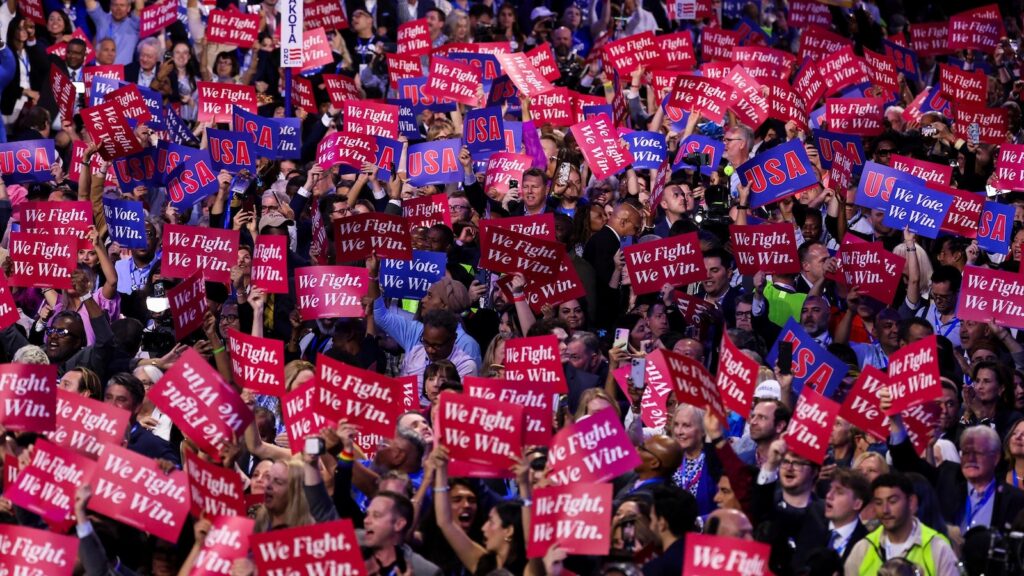
Thursday’s Supreme Court hearing over President Donald Trump’s attempt to curb the constitutional guarantee of birthright citizenship technically wasn’t about whether his attempt is legal. But while the hearing exposed his attempt’s illegality and his administration’s lack of confidence in its legality, it’s unclear when the justices will issue a definitive ruling on whether it’s legal or not.
That’s because the Trump administration isn’t asking the justices to decide the merits of his executive order, which effectively seeks to unilaterally rewrite the Constitution. Rather, it asked them to rule that lower court judges who blocked the order overstepped when they granted nationwide relief instead of just granting relief for plaintiffs who sued in certain geographical districts — with this appeal stemming from district judges who blocked the order in Washington state, Maryland and Massachusetts.
Against that backdrop — and likely knowing that it has a loser of a case on the merits of the long-settled birthright citizenship issue — the administration pressed its appeal by complaining about the propriety of nationwide injunctions generally, a subject that the justices have raised in several cases having nothing to do with birthright citizenship. So the injunction issue goes beyond birthright citizenship, but the court is considering it in this especially important context.
It’s unclear what the court will say in its forthcoming ruling about when so-called universal injunctions are appropriate, a decision that could affect how lawsuits are mounted in all sorts of cases during this administration and beyond. But it became clear at the hearing that the underlying merits of the birthright citizenship issue — and, importantly, when the court can decide it — is also on several justices’ minds.
The Democratic-appointed justices pressed U.S. Solicitor General John Sauer most strongly on the merits, with Justice Sonia Sotomayor, for example, saying that Trump’s order violates four Supreme Court precedents.
Sauer defended the legality of Trump’s order while focusing primarily on the injunction issue, but he said litigation over the order’s legality should go through “percolation” in the lower courts.
Justice Elena Kagan told Sauer she thinks the case presents this question: “If one thinks that it’s quite clear that the EO [executive order] is illegal, how does one get to that result, in what time frame, on your set of rules, without the possibility of a nationwide injunction?”
Sauer said there should be “appropriate percolation” in the lower courts and then ultimately the Supreme Court “decides the merits in a nationwide binding precedent.” He said this case, with district courts issuing nationwide injunctions, inverts that principle.
Kagan said it could take years for the issue to reach the court under Sauer’s approach, and all the while there would be “an untold number of people, who, according to all the law that this court has ever made, ought to be citizens who are not being treated as such.” She raised the concern that the government could just not seek Supreme Court review of adverse lower court rulings on the merits of the issue because the government has no incentive to bring a case it would lose.
Trump-appointed Justice Neil Gorsuch also asked Sauer how the court can get to the merits expeditiously. Sauer said that while there are “a number of tools” to do that, this case “cries out for percolation,” noting that the issue is being litigated in multiple federal appeals courts.
Fellow Trump appointee Amy Coney Barrett observed that the government has pressed for speedy merits consideration in other cases. Sauer agreed, while giving an example of a case in which the administration did so because that other case, it thought, was very clear-cut on the merits. This case, he conceded, is novel.
As a general matter, saying one wants to let an issue percolate in a deliberative manner has an air of sophistication and even wisdom to it. But here, it’s difficult to read the administration’s litigation strategy as anything other than an admission of weakness about the legality of Trump’s order and an attempt to implement it wherever it can by avoiding Supreme Court review.
A big question now is when the court will reach the underlying issue of the legality of Trump’s order. The court’s forthcoming decision in this injunction-focused appeal — expected by July — won’t necessarily resolve that crucial merits question, but it could at least give a hint as to when and how it might, and perhaps even to what the justices think about it.
Subscribe to the Deadline: Legal Newsletter for expert analysis on the top legal stories of the week, including updates from the Supreme Court and developments in the Trump administration’s legal cases.



